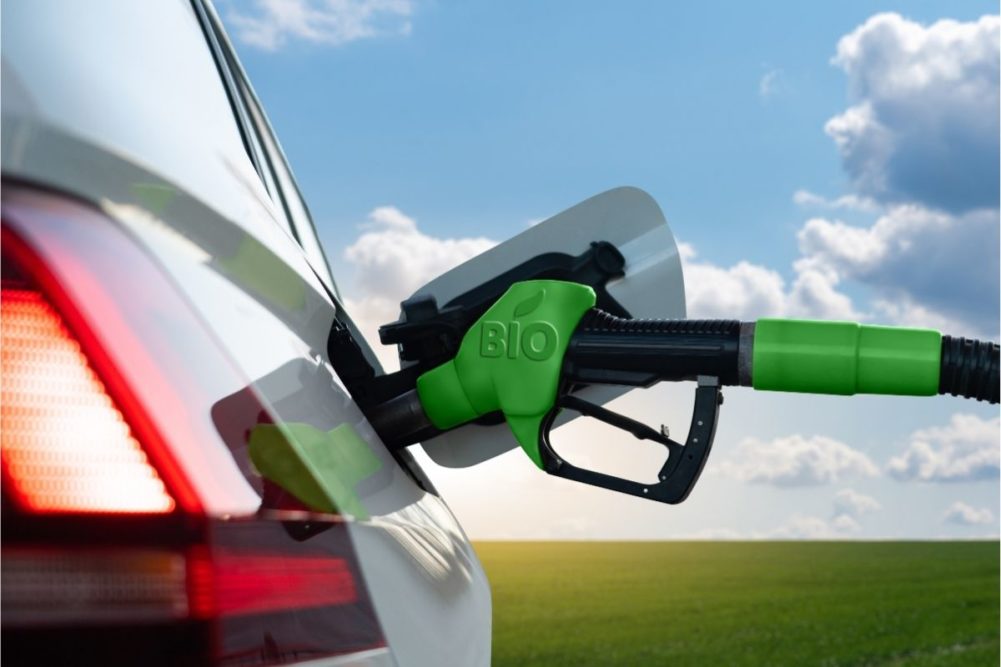WASHINGTON, DC, US — The US Grains Council (USGC) welcomed more than 350 ministerial-level officials and industry leaders, bioethanol producers and refiners from more than 40 countries to its Global Ethanol Summit (GES), an education and trade forum Oct. 16-18 in Washington, DC.
GES seeks to elevate bioethanol’s international visibility and ongoing successful initiatives as a viable decarbonization solution within the transportation sector, and the first day was filled with four general sessions featuring speakers addressing the myriad challenges and opportunities facing the expansion of global ethanol use.
The USGC develops export markets for US barley, corn, sorghum and related products including distiller’s dried grains with solubles (DDGS) and ethanol while operating programs in more than 50 countries and the European Union.
Brent Boydston, chairman of the USGC, opened the event and introduced the first day’s three keynote speakers: Jeff Broin, founder and chief executive officer of POET; Bruce Rastetter, executive chairman, Summit Agricultural Group; and Jason Hafemeister, acting deputy undersecretary, US Department of Education (USDA). Ryan LeGrand, president and CEO of the USGC, followed with the opening address previewing the rest of the event.
“USDA is constantly involved with other countries about expanding bioethanol blends and sustainable production practices,” Hafemeister said. “Domestically and abroad, USDA is seeking to show that biofuel products have real value and create a durable commercial market that allows consumers to have a choice of using biofuels that makes them realize, ‘this saves me money, benefits the environment and I feel better for it.’”
The second general session on Day 1 included a panel discussion on governmental perspectives on global ethanol policies and speakers shared stories of successful biofuel integration efforts in their regions.
Emily Skor, CEO of Growth Energy, moderated the conversation and was joined by panelists including Lauren Clarke, manager at Environment and Climate Change Canada; Hideaki Fujisawa, minister of economy, trade, industry/business and energy at the Embassy of Japan; Ruby de Guzman, director of renewable energy management at the Philippines Department of Energy; Brian Richardson, chief technical director of energy at the Jamaican Ministry of Science, Energy, Telecommunications and Transport; and Rod Snyder, senior adviser to the administrator at the US Environmental Protection Agency.
The afternoon began with a roundtable of experts from multilateral organizations who offered an overview of global ethanol feedstocks and end-use outlooks. Moderator Gerry Ostheimer, executive director at Biofuture Campaign, headed the group that featured a video message from Paolo Frankl, head of renewable energy at the International Energy Agency; Marcel Adenauer, policy analyst at the Organization for Economic Cooperation and Development; Dawit Kelemework Mekonnen, senior economist at the World Bank; Constance Miller, deputy coordinator for the secretariat at the Global Bioenergy Partnership; and Augustin Torroba, head of renewables and international biofuels specialist at the Inter-American Institute for Cooperation on Agriculture.
“We want to support transparent and informed policymaking and help countries understand assessments of their climate goals and obligations,” Miller said. “As an industry, we need to use recent geopolitical momentum toward clean energy to take on and address misconceptions about biofuels.”
The day wrapped up with a panel discussion on international engagement efforts to achieve global E10 policies and beyond. Moderator Doug Berven, vice president for corporate affairs at POET, took to the stage with Rodrigo Cardenal, president and CEO of the Panama National Sugarcane Industry Association; Aditya Jhunjhunwala, president of the India Sugar Mill Association; Andrea Kent, past president and board director of Renewable Industries Canada; Dr. Stephan Meeder, president of ePURE; and Gerardo Tee, chairman of the ethanol producers association of the Philippines.
Today’s programming will continue with seven concurrent sessions on a variety of detailed topics on biofuel uses and the latest research on its carbon reduction capabilities. Memorandums of understanding also will be signed between the Council and key ethanol stakeholders from around the world.
At the end of the event, 11 groups of participants will travel around the United States for a first-hand view of the biofuel value chain.





